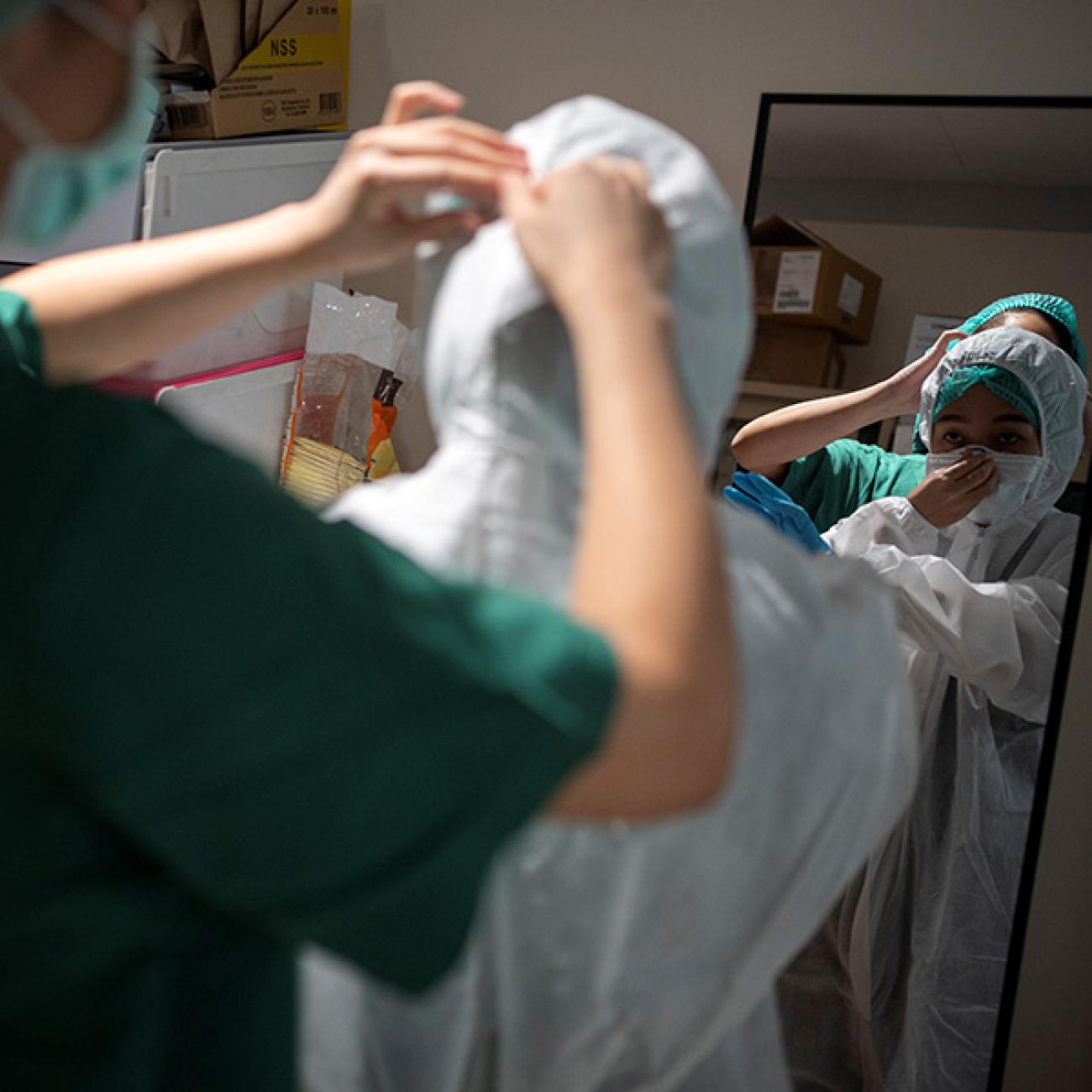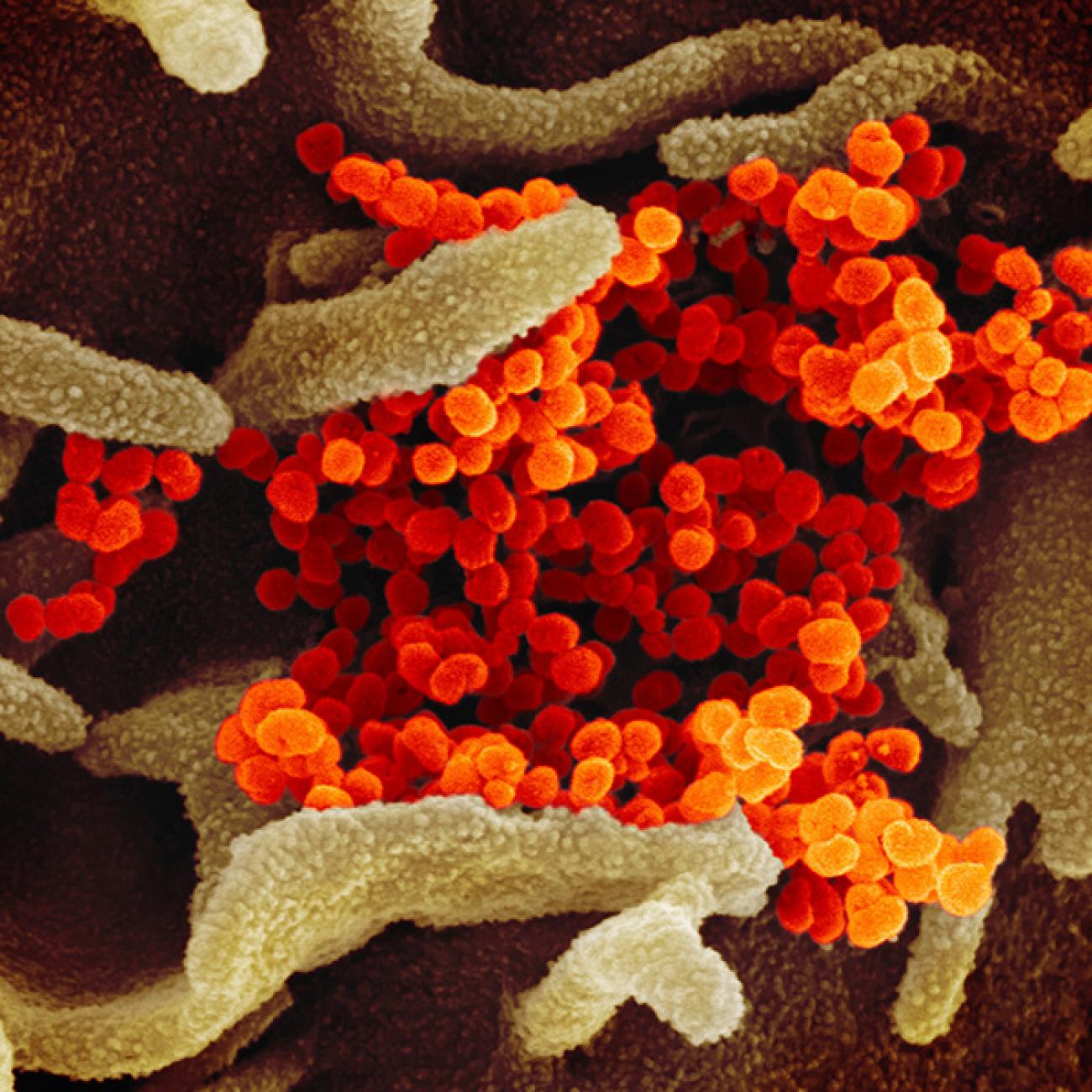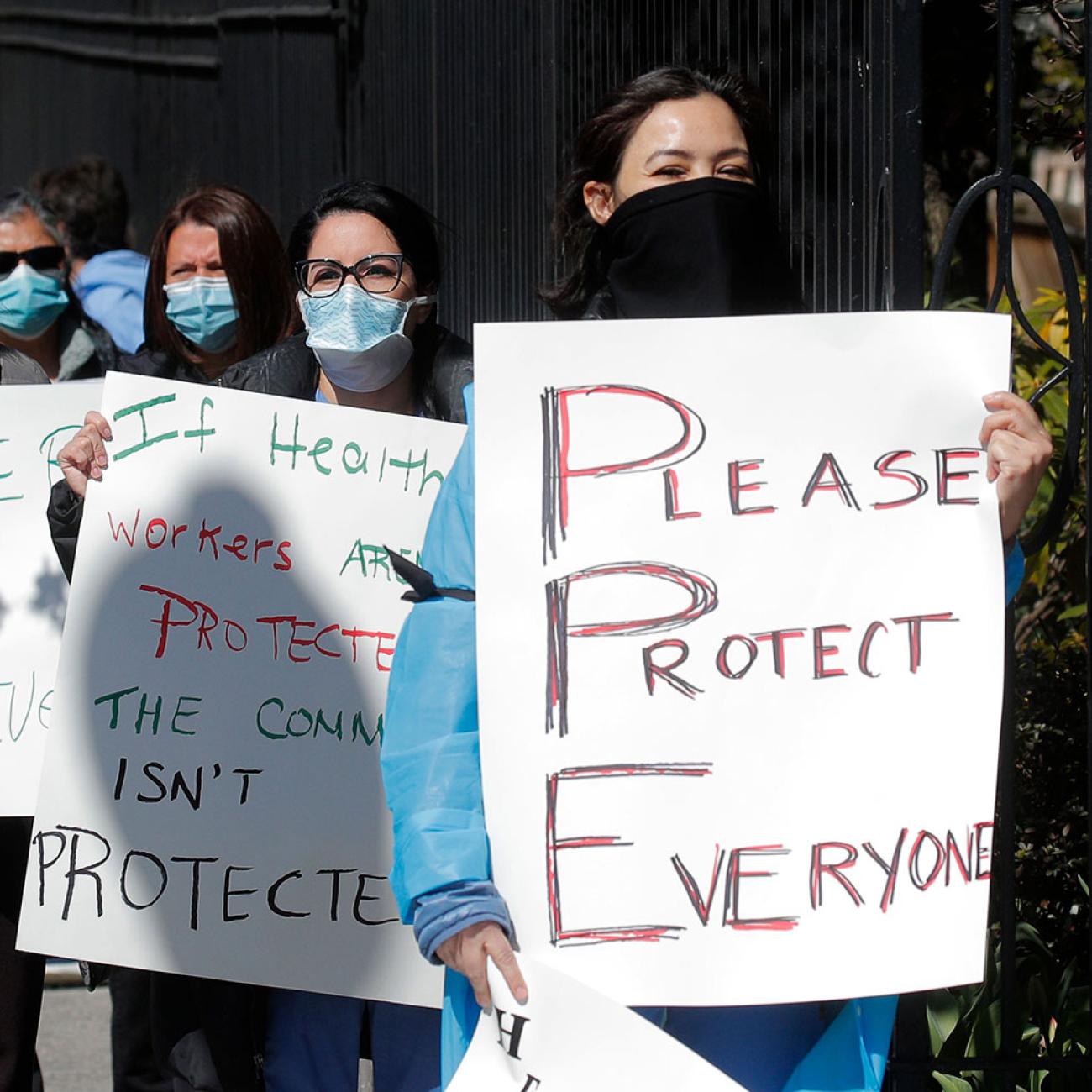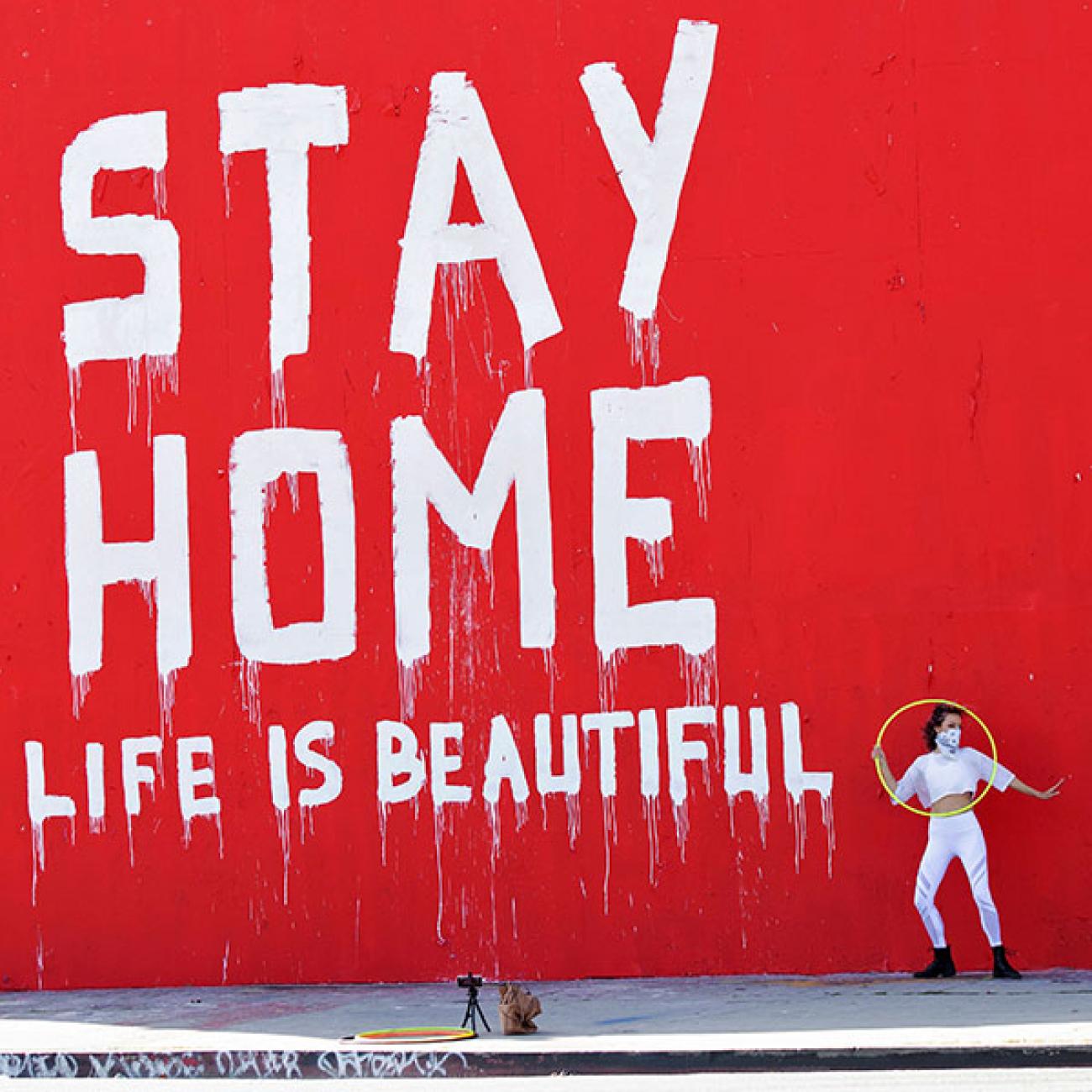More than ever, we live behind walls. In our homes, we stare at them, desperately wanting to leave. Our shops, workplaces and schools are shuttered. Borders have closed, and we are unsure of whether international travel will ever be as easy as it once was.
At the same time, this isolation is the greatest act of solidarity our world has ever seen. Behind these collective walls are hundreds of millions of people, seeking to protect ourselves and our families, doing our part to protect the community at large. We are a remarkable human chain united, six feet apart.

We now urgently need to ensure that governments act in this same cooperative spirit. As the novel coronavirus pandemic has spread, some countries have retreated into isolationism, and reverted to a nationalism hardly seen in recent memory. Governments must prioritize their own populations, yes—but even when there are surpluses, many have chosen to restrict or ban the export of soap, hand sanitizer, gloves, masks, medicine, and pharmaceutical ingredients. While protecting the self-interests of countries and their people is understandable, the world is interconnected, and the health, safety, and security of any country are inextricably linked to the survival of others.
We are a remarkable human chain united, six feet apart
Isolationism is counterproductive, shortsighted, and incredibly dangerous. We need governments and international donors to invest in public health—not just at home, but around the world—with a special focus on Africa. COVID-19 has devastated economies and undermined health-care systems in some of the world’s most stable countries, even those with strong and modern health systems. Weak health systems make countries even more vulnerable. Without support, low- and middle-income countries that lack proper equipment, facilities, staffing, and training—as many countries in Africa do—are likely to see death and suffering beyond the disease itself. Hunger, violence, complications in childbirth, and untreated conditions such as malaria or hypertension will multiply. Decades of progress on reducing poverty could be reversed.

When Mark Lowcock, the United Nations’ undersecretary-general for humanitarian affairs and emergency relief coordinator, launched the UN’s $2 billion COVID-19 humanitarian appeal on March 25, he warned that if we left coronavirus to spread freely in vulnerable places, “we would be placing millions at high risk, whole regions will be tipped into chaos and the virus will have the opportunity to circle back around the globe.”
Of IMF’s $1 trillion emergency assistance, just $6 billion—0.6 percent—is earmarked for health care. This is not enough.
The International Monetary Fund (IMF) is currently responding to requests for emergency assistance from more than eighty countries around the world, with over $1 trillion available in loans. The World Bank has announced a package of $14 billion in fast-track assistance to twenty-five countries and hopes to deploy $160 billion in the next fifteen months, although it is unclear if this money is in addition to the World Bank’s usual spending, or which countries will have access to it. And despite the quick reactions of both institutions, this money takes precious time—weeks or months—before it can be effectively deployed. The funds are also at risk of being absorbed across the sectors affected by COVID-19, including support needed to keep economies afloat.

Of the $1 trillion in funding from the IMF, just $6 billion, or 0.6 percent, is earmarked for health-care spending. This is not enough. The World Bank and the IMF recently announced that Africa needs an additional $44 billion this year to respond to COVID-19. $6 billion is not enough to maintain essential health services and respond to the pandemic. It is not enough to avoid the collapse of our health systems around the world.
Many countries have worked hard to develop response plans, but they simply do not have the money to carry out those plans
In addition to money, many countries need technical assistance to mount an effect response to this pandemic. At my organization, Vital Strategies, we are working with ministries of health and other partners in more than sixty countries to reduce the spread of COVID-19 and mitigate the effects of the pandemic. Many countries have worked hard to develop response plans, but they simply do not have the money to carry out those plans. Ethiopia wants to send community health workers house-to-house to identify people with symptoms, take temperatures, and send those who are sick to isolation sites. Home visits are a strategy the country has successfully deployed during outbreaks of cholera, malaria, tuberculosis, and HIV. The Democratic Republic of Congo is still managing a measles outbreaks and the second largest Ebola epidemic in history, all while mobilizing a response to COVID-19. Several states in Brazil would like to adopt the approach of nearby Rio Grande do Sul, which is using population-level randomized testing as a tool to get a more precise snapshot of each region’s situation and design more customized solutions. They do not have the funding to do so.

If COVID-19 has taught us anything, it is that we are one world, all connected. We can create and fortify our borders, but diseases don’t respect borders. We are only as strong as the world’s weakest link. While it is crucial to manage this crisis at home, we must not lose sight of the bigger picture. If countries are destabilized, we cannot afford to cope with the results. We have a choice: extend our solidarity to the world with immediate funding to control the disease and strengthen our defenses, or spend trillions of dollars cleaning up the mess for many years to come.








